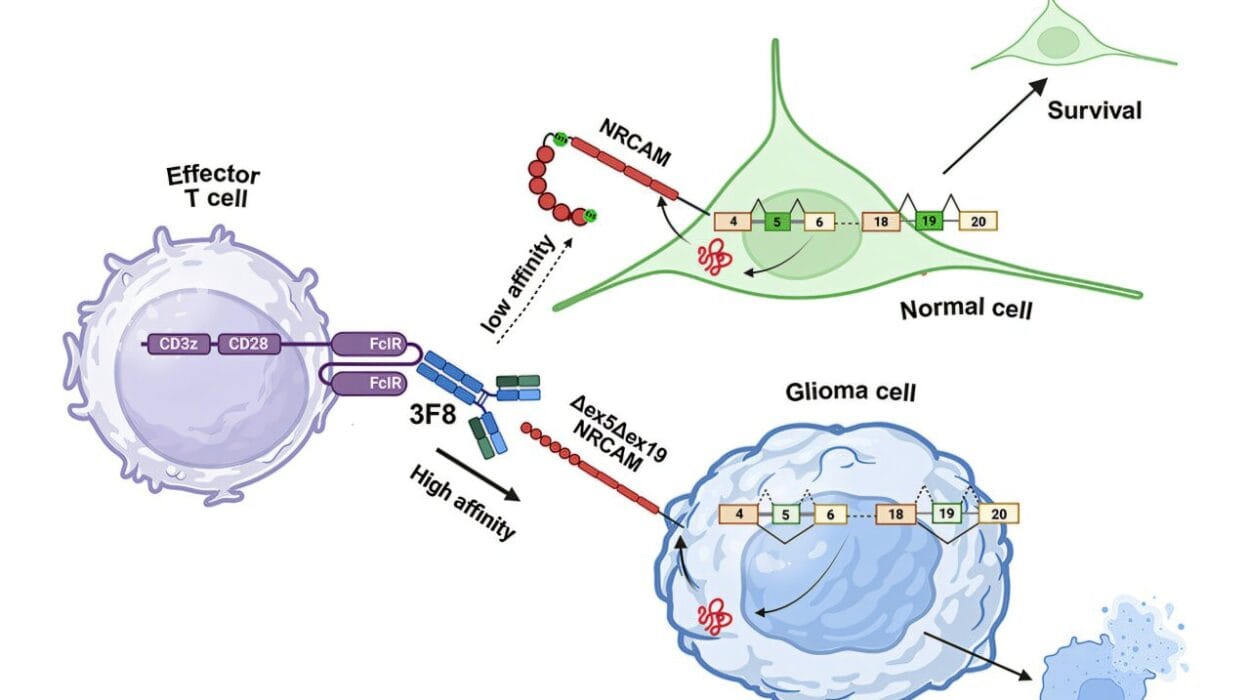It’s a mystery that has lingered for decades: what causes Attention Deficit Hyperactivity Disorder (ADHD)? For years, researchers have known that genetics plays a significant role in the development of ADHD, but the precise genetic underpinnings have remained elusive. While many of the genetic variants associated with ADHD have small effects, the latest research from an international team of scientists has uncovered something more profound: rare genetic variants with high impact. These rare variants, it turns out, could be key to understanding why some individuals are more likely to develop ADHD than others.
In a groundbreaking study led by researchers from Aarhus University’s iPSYCH group, scientists have pinpointed rare variants in three specific genes—MAP1A, ANO8, and ANK2—that dramatically increase the likelihood of developing ADHD. The findings, published in Nature, reveal that individuals carrying these rare genetic variants may have up to 15 times the likelihood of developing the disorder. This discovery could not only reshape how we think about ADHD but could also open new avenues for treatment and intervention.
The Hidden Role of Rare Genes
While ADHD has long been understood as a highly heritable condition, the complexity of its genetic roots has made it a difficult puzzle to solve. In the past, research had identified thousands of genetic variants that could slightly increase the risk of developing ADHD, but none had shown a dramatic effect. That is, until now. According to the team’s findings, when these rare variants appear, they have a strong and disruptive effect on brain function, particularly in nerve cells involved in the regulation of attention, impulse control, and motivation.
“We can now, for the first time, point to very specific genes in which rare variants confer a high predisposition to developing ADHD,” says Professor Anders Børglum, the senior author of the study. “The identified variants very likely have a highly damaging effect on the genes, and they show us precisely which genes and fundamental biological mechanisms may be affected.”
The significance of this discovery cannot be overstated. For the first time, scientists have a concrete target to investigate—specific genes whose malfunction may be contributing to the development of ADHD. This is not just about uncovering genetic markers for the disorder; it’s about understanding the biological processes at the heart of it.
Mapping the Brain’s Developmental Pathways
One of the most intriguing aspects of this study is the way the researchers combined genetic data with insights into how these genes are expressed in different brain cells. Their analysis showed that the rare variants identified in MAP1A, ANO8, and ANK2 primarily affect the function of two types of neurons in the brain: dopaminergic neurons, which help regulate motivation and attention, and GABAergic neurons, which play a crucial role in impulse control.
These types of neurons are fundamental to the brain’s ability to regulate behavior. It is in these neurons that the rare genetic variants may cause disruptions, potentially explaining why individuals with ADHD experience challenges in focus, attention, and self-control. What’s even more surprising is that these effects are not confined to childhood; they can be traced from fetal life into adulthood.
“Our findings support that disturbances in brain development and function are central to the development of ADHD,” explains Professor Ditte Demontis, the study’s first author. “We have also analyzed which proteins interact with the proteins encoded by the three identified ADHD genes, and we have identified a larger protein network that also plays a role in other neurodevelopmental disorders—including autism and schizophrenia. This provides insight into the biological links across several psychiatric diagnoses.”
The discovery that these rare variants could affect brain function from such an early stage in life is significant. It suggests that the roots of ADHD may begin far before a child ever shows symptoms, offering potential for earlier detection and intervention.
The Ripple Effect: How Genetics Influences Life Beyond ADHD
But the impact of these rare genetic variants goes beyond just the diagnosis of ADHD. The study also uncovered that individuals with ADHD who carry these high-risk genetic variants tend to have lower educational attainment and socioeconomic status than those without them. The researchers linked genetic data with extensive Danish registry data, which provided a clearer picture of how these genetic differences could manifest in the real world.
Jinjie Duan, a postdoctoral researcher involved in the study, explains that “this suggests that individuals generally face greater cognitive challenges if they have ADHD due to these rare genetic variants, which may have educational and occupational consequences.” Indeed, the study found that the cognitive challenges associated with these variants could lead to an average reduction in IQ by about 2.25 points for each rare high-risk variant an individual carries.
This discovery shines a light on the broader implications of ADHD—how genetics can influence not only an individual’s ability to manage attention and impulses but also their performance in school and the workplace. It paints a more nuanced picture of ADHD, showing how it could be more than just a mental health condition but a factor that influences long-term educational and career outcomes.
A New Path Forward for ADHD Research
This research is more than just a breakthrough in understanding the genetic basis of ADHD; it could also help shape the future of treatment for the disorder. By identifying these specific genetic variants, researchers now have a more concrete path to follow in studying the biological mechanisms behind ADHD.
“This study provides a new and concrete direction for mapping the biological mechanisms involved in ADHD, because we now know causal genes with high-effect variants,” says Professor Børglum. “They give us insight into some of the fundamental biological processes which can guide the design of deeper mechanistic studies—for example, to identify new therapeutic targets.”
What makes this discovery even more exciting is the promise it holds for future research. According to Duan, “We are only at the beginning of uncovering these rare high-effect variants. Our calculations show that there are many more rare causal variants that can be identified in even larger studies. In the current study, we can already point to 17 additional genes with rare variants that are very likely to be causal.”
This suggests that the field is on the cusp of even more breakthroughs in ADHD research, with the potential to uncover many more high-impact genetic variants. As these discoveries continue, they could lead to more targeted treatments, perhaps even personalized medicine approaches, to help manage or mitigate ADHD based on an individual’s genetic profile.
Why This Matters
The importance of this research cannot be overstated. ADHD affects millions of people worldwide, and while treatments exist, they often don’t address the root causes of the disorder. By pinpointing the genetic variants that predispose individuals to ADHD, scientists can better understand the disorder at a molecular level, paving the way for treatments that target the underlying biological mechanisms rather than just managing symptoms.
Moreover, this discovery highlights the interconnectedness of mental health conditions. The finding that the same genetic pathways are implicated in ADHD, autism, and schizophrenia suggests that understanding one disorder could provide insights into the others. This could lead to breakthroughs that benefit individuals with a variety of neurodevelopmental and psychiatric conditions.
Ultimately, this research offers hope for a future where ADHD—and other neurodevelopmental disorders—can be better understood, diagnosed earlier, and treated more effectively. It’s a glimpse into a world where science is unlocking the secrets of the brain, one gene at a time.
More information: Ditte Demontis et al, Rare genetic variants confer a high risk of ADHD and implicate neuronal biology, Nature (2025). DOI: 10.1038/s41586-025-09702-8






